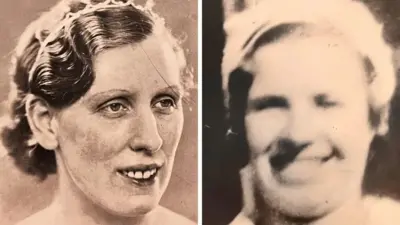We've updated our Privacy and Cookies Policy
We've made some important changes to our Privacy and Cookies Policy and we want you to know what this means for you and your data.
Powys Health Board apology over cancer care failings
A health board has apologised to a family for failings in the care given to an elderly cancer patient.
Graham Silkstone, 87, died at Brecon War Memorial Hospital in Powys in 2008 in what his family said were "disgraceful" circumstances of neglect.
The public services ombudsman found failures to plan his care, keep accurate medical notes or communicate with his family.
Powys Health Board said it fully accepted the findings.
Among the failings highlighted, the ombudsman found someone had marked the retired civil servant's records with a "do not attempt to resuscitate" note, but without any consultation with his family.
Also, after Mr Silkstone's death, his body was viewed by a family friend, again without consultation with the family.
Mr Silkstone's daughter, Janet Treharne Oakley, has called for the law to be changed on who can have access to a deceased patient's notes.
'Neglected overnight'
She said: "The care that my dying father received at Brecon hospital was a complete disgrace.
"He died, trying to summon help, after being neglected overnight, after his return from the Prince of Wales Hospital [in Merthyr Tydfil] the previous day.
"Merthyr staff had stated that his medical needs be assessed on his return. No assessment took place.
"This nursing failure was crucial and yet, according to internal documents, nobody has been disciplined by Powys, as nobody seems to have been to blame.
"When the complaint was raised, the health authority must have known from the medical notes that nursing standards were unacceptable."
Powys health board chief executive Andrew Cottom said he wanted to make a personal apology to the family.
'Apologise fully'
He said: "We recognise that this case must have caused distress to the family.
"I apologise fully and unreservedly for the shortcomings that have been identified in the ombudsman's report.
"We accept that there were failings in relation to the management and care of [Mr Silkstone].
"These related to: observing and monitoring his condition following his return from another hospital, where he had undergone an endoscopy procedure; inadequate record keeping; and the failure to follow the mortuary policy."
He said health board staff had been working to address the issues raised by Mr Silkstone's case.
Top Stories
More to explore
Most read
Content is not available








